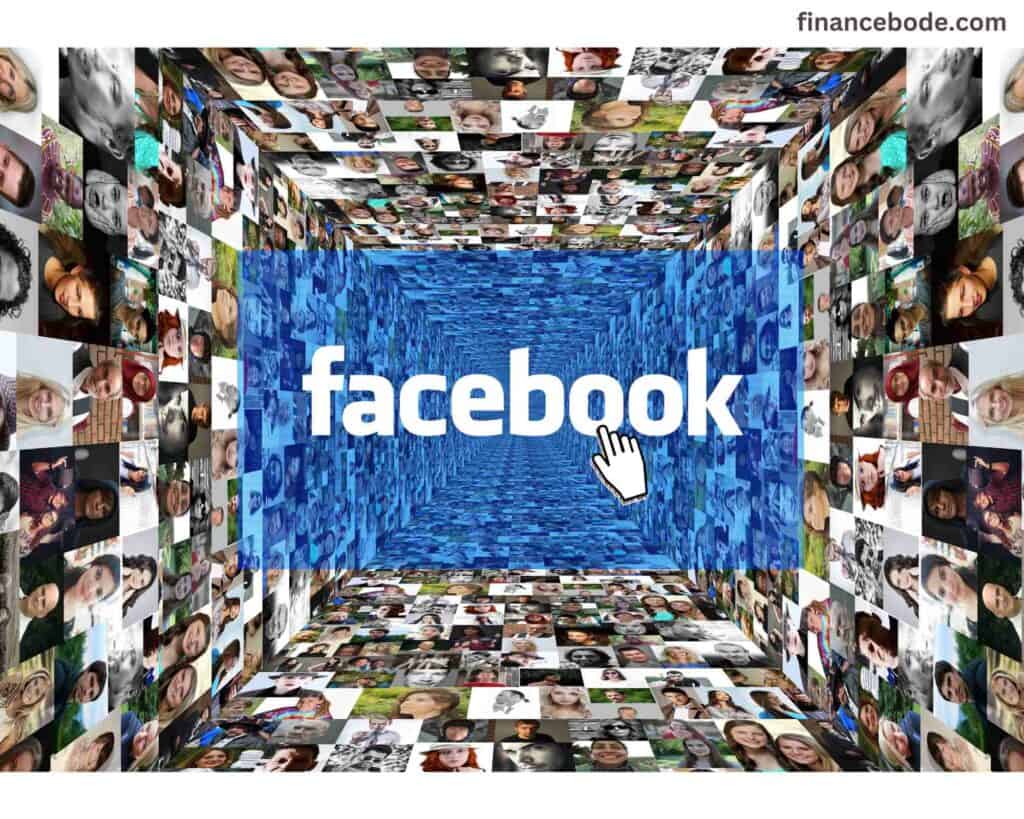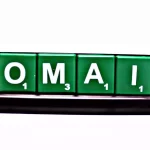Do bloggers need a Facebook page for their blogs? Is that the question you have in mind?
I now advise bloggers to create a Facebook page for their blog if they are ready to do a specific amount of work.
If you want to create a Facebook page only to share your blog post, the value for the readers is nothing. You can do that on your Facebook profile or one of the numerous blogger groups on Facebook.
On the other hand, having a Facebook page is an excellent idea if you want to create a community around your blog and business and are prepared to devote time and energy to the project.
As a blogger, we don’t need anything except to blog. Everything else is optional and relies on your blog aims and hobbies.
Despite all this, I decided to create a Facebook page and would want to quickly explain why a Facebook page makes sense for us as bloggers.
See also: Blogging and Instagram.
What Is A Facebook Page?
Let’s take a short look at what a Facebook page is. Facebook Page is a public presence for brands, corporations, celebrities, organizations, and all sorts of enterprises.
So, suppose you want to advertise your company, run advertising, sweepstakes, and competitions on Facebook, and communicate with your target audience. In that case, Facebook Page is a method to accomplish all that and more.
Now, despite obvious and unequivocal restrictions, numerous businesses and bloggers have reached out and started profiles — either out of ignorance or to attempt and cheat.
Often some corporations establish bogus sexual profiles that fast accumulate up to 5000 friends and then convert that profile into a Page.
Facebook was more or less lenient with these type of stuff; however, not anymore:
Can I Blog On Facebook?
Blogging on Facebook. I hear and read this over and over again. Blogging on Facebook is technically viable but not exactly right in terms of substance.
Because: We usually perform conventional blogging and, in the best scenario, on a website, not a social media platform. And if you’re serious about blogging. Facebook is not your website.
The key for us bloggers is our own website, i.e., our own platform that we own! This is not the situation with Instagram, Facebook & Co.
Since we are merely users there, our accounts can be banned at any moment without providing explanations.
Our Facebook profile or a Facebook page is not a replacement for our own blog but only a platform that aids us in our exposure!
But happily, “Blog or Facebook?” is not the question at all: It’s not an either/or, but a both/and!
What Is The Difference Between A Facebook Profile And A Facebook Page?
Here I quickly explain the difference between your personal profile and your Facebook pages:
1. You only have ONE profile. However, you can have numerous Facebook Pages.
Your Facebook profile has the same name as you (assuming you use your actual name). This is the one profile you use to register as a person on Facebook.
But you can make several Facebook pages on all possible topics: for your music club, for your jogging group, and even for your blog.
Your Facebook pages will be titled appropriately, e.g., B. “Musikverein ORT.”
2. Your profile is yours alone. A Facebook profile is for ONE private person. Nobody else has access to it. A Facebook Page, on the other hand, can have many administrators.
You have friends on your Facebook profile but followers or subscribers on your page.
3. You have many additional privacy options on your personal profile: There, you can choose whether, e.g., B. Only your friends can view your posts. On your Facebook page, all of your posts are entirely visible.
4. A Facebook Page enables you to utilize Facebook features such as B. the ad manager, analytics, retail operations, or the Creator Studio.
5. On our personal page, we prefer to post more personal stuff, such as B. adventures, hilarious Internet photographs, and holiday pics.
On our Facebook Pages, we post stuff that has anything to do with the theme of our Facebook Page. So the subject on our Facebook sites is much more targeted.
Initially, our Facebook pages have a horrible reach, which is why many individuals subsequently opt to continue posting on their Facebook profiles.
This becomes troublesome at the latest when we distribute advertising material. Because: Facebook does not like it at all if we promote it on our personal page. That’s what our Facebook pages are for!
6. The Left Sidebar: This is where you’ll discover many additional tools and the option to control our Facebook page.
We only have this left sidebar on our Facebook pages; it doesn’t exist on our personal profiles!
When Does A Facebook Page Make Sense For Us As Bloggers?
“What do I need a Facebook Page for? I merely put my blog pieces on my own Facebook page!”
This is one of the most common phrases I hear about Facebook!
And yeah, I realize that many individuals prefer to publish on their Facebook page. Because: Our Facebook page was there first! We already have friends there and fantastic exposure.
As soon as we publish anything, we receive immediate replies. And certainly, it can also make sense to post blog content on your personal profile.
But here are reasons I’ve put up why you may need a Facebook Page after all:
A Facebook page makes sense for you in these cases:
1. If you wish to thematize anything on Facebook – independently of yourself. Your personal Facebook profile is always about you!
You are the primary person on your profile. But there are other occasions in which we don’t wish to expose our faces. For example, if we wish to showcase a product, a business, or a project.
And that’s where a Facebook page is a great idea.
2. If you execute a project as a group: With a Facebook page, we function as a private individual.
But if you. For example, if you are beginning an advertising firm with a business partner or if you want to track how you are training for a half marathon with three pals, a Facebook page is excellent.
3. Once you go commercial. Facebook doesn’t appreciate it at all when we post commercial stuff on our personal profiles.
You may then be banned (although, mind you, most bans in my environment have been accidental/arbitrary and without breaching any community norms).
4. You want more visitors to your blog right from the start.
A Facebook page is great for this (after you have conquered the initial dry period. Because, as noted above: your Facebook pages have a very low reach at the beginning).
Sure, you could also publish your blog pieces on your own Facebook page, but then your exposure would always be restricted to your friends.
When you’re just starting out blogging, it takes time to attract traffic from search engines.
If you post your blog articles on Facebook, you will soon acquire a lot more hits on your blog articles.
MARGARET BOURNE outlines why Facebook is helpful for growing your blog traffic in her blog piece “How To Use Facebook Groups To Grow Your Blog Traffic And Business ” HERE.
5. You don’t want to publish a lot of material about your self-employment on your personal Facebook profile.
For example, since you don’t want to bother your friends or family members with your company subject.
6. You want to discuss your blog articles, but you notice that nobody is commenting on your blog. With the rise of Facebook, the blogosphere, i.e., the entirety of all blogs, crumbled.
Because: People have got used to commenting almost exclusively on Facebook. Sure, from a blogger’s point of view, that’s annoying.
But: We can make a virtue of necessity by publishing our blog articles on our Facebook pages and encouraging comments there.
7. You want to sell through Facebook or get questions about your services, coaching, and goods.
Only with a Facebook page. For example, put up a store or a WhatsApp button that people can use to contact you. It’s a really simple, no-fuss method to get in touch with you!
8. Think Big: You have big plans for your blog or business: Most Facebook pages are bogging down because they can’t get past the first dry spell.
People prefer to post on their personal Facebook profile because the reach is often higher there.
But the thing is, with your personal Facebook profile, you always reach the same people. Namely, the ones who are already your friends anyway.
Your opportunities to expand your reach outside of your friend’s bubble are very limited. You need a Facebook page for that!
9. You write a lot and have the idea that it would be too much for your Facebook friends to read about your blog subject x times a week.
12. Your site has a highly specialized niche issue. Then a Facebook page absolutely makes sense since many users use Facebook as a search engine and are seeking intriguing pages or groups on their topic.
13. You already use Facebook groups and want your teammates to be visible in your groups as your teammates. I use Facebook groups for all my launches.
So that people know whether a normal user or a team member is commenting, I have created a Facebook page for all my team members.
To make the sender of a comment appear as my official teammate, I created a Facebook page for each of my teammates.
I then make my team members editors of these pages and link these pages to my groups. This way, my team members can then post and comment on this page in their roles. That’s really super practical!
When Do You NOT Need A Facebook Page?
1. When you have developed a new product.
This is very important: you do NOT need a separate Facebook page for each of your products!
Because otherwise, you’ll quickly end up with uncontrolled growth and won’t post anything at all.
It is important that you have a Facebook page for your topics, e.g., B. for your business.
On this page, you then write about all your products that belong to this one business.
2. If you write less than once a month.
You simply don’t have enough content to publish consistently on Facebook. Instead, maintain posting your blog posts on your personal profile (unless you’re moving into commercial activity, in which case you MUST establish a Facebook page).
3. If your target group is visiting someplace else.
Is your audience or target group more likely to hang out on Instagram or LinkedIn? Then go to these sites and post your blog content there!
4. If you have a non-commercial lifestyle interest subject that you specifically want to share with your current group. Then your blog articles and posts are more likely to be in better hands on your own Facebook p.
How Can I Build A Facebook Page?
Creating a Facebook page is extremely simple: you log into Facebook, click on the symbol with the 3×3 dots in the left sidebar, and then pick “Page” under “Create.”
Then you will be taken step by step through the page creation process.
1. Enter the name of the Facebook Page in “Page Name.” It is important that you choose a meaningful name.
For example, if you are a fitness blogger, you could enter “first name last name Fitness Blogging” here.
Your Facebook page should be different from your name
Otherwise, your Facebook page could be confused with your Facebook profile (which has the same name as you).
2. Then, choose a category. Don’t worry if the category doesn’t exactly match. If in doubt, just select “Consultant.”
3. Then, create a brief, relevant explanation. Good to know: This description is optional, and you can alter it at any moment.
4. Once you’ve provided a page name and picked a category, the box at the bottom that reads “Create Page” will become blue and active.
If you click the button, you have made your page!
After that, you can alter the header image and profile picture of your page.
And now, you can get started and bring your Facebook page to life!
What If I Want To Publish Something That Matches Both My Facebook Profile And My Facebook Page?
No problem: Then, first, post your content on your Facebook page and then on your personal profile! This is fairly simple:
1. Post anything on your Facebook page that you wish to post on your profile as well.
2. Go to your Facebook page and modify the role with which you engage by clicking on your profile photo on the far right and choosing your personal profile.
Then the view of your Facebook Page changes because now you see your own Facebook Page from the perspective of a private person.
3. Scroll to the post you want to share and click Share underneath the post.
4. Select “Share in feed” and add a brief statement describing why your friends should read this article.
5. OPTIONAL: In your posting text, indicate that your friends should like or subscribe to your Facebook page. This way, you obtain more fans/followers – and, therefore, more exposure for your Facebook page
6. Only periodically post stuff from your Facebook page to your profile. Otherwise, your friends won’t see a need to subscribe/like your page.
Conclusion
In the ever-evolving field of blogging and digital marketing, harnessing social media sites like Facebook can considerably help bloggers.
A dedicated Facebook page can serve as a significant tool to engage with a huge audience, generate website traffic, and develop authority in your area.
If you follow these instructions and establish them in a manner that will provide more value and benefit to your readers, followers, and target demographic.
Facebook can boost your blogging adventure and catapult your online presence to new heights.
Given that 1.59 billion individuals check Facebook on a daily basis, it is a must-use marketing strategy for your site.





